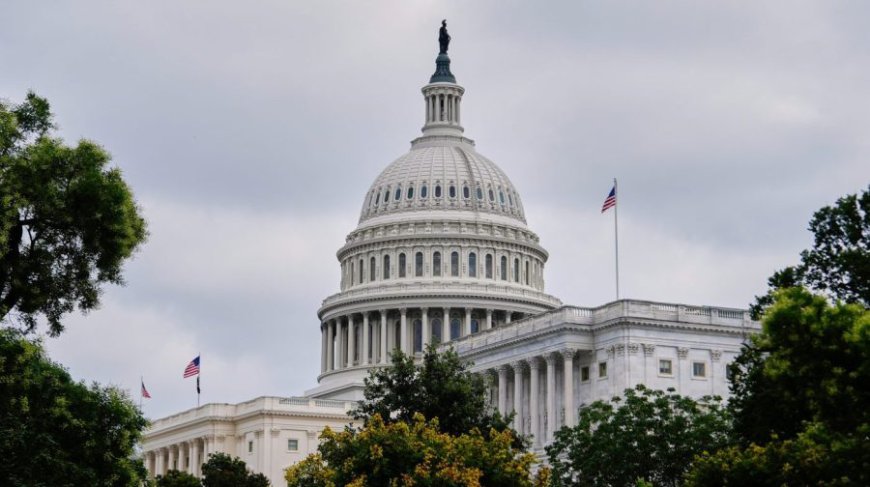House passes crypto market structure bill after GOP revolt
The House passed legislation Thursday laying out regulatory rules for the crypto industry, after GOP leadership managed to stem a revolt from competing factions in the conference that brought the floor to a standstill and left the crypto legislation in limbo. The Digital Asset Market Clarity Act cleared the House in a 294-134 vote, with...

The House passed legislation Thursday laying out regulatory rules for the crypto industry, after GOP leadership managed to stem a revolt from competing factions in the conference that brought the floor to a standstill and left the crypto legislation in limbo.
The Digital Asset Market Clarity Act cleared the House in a 294-134 vote, with 78 House Democrats joining all Republicans to support it.
Its passage comes at the end of a rollercoaster “crypto week” in the House, during which GOP leadership had hoped to easily pass a trio of digital asset bills.
However, a group of hard-line Republicans revolted Tuesday, tanking a procedural vote and prompting President Trump to step in. He struck a deal with the lawmakers, but it ultimately failed to stem the rebellion and angered other members.
The agreement would have added language from the Anti-CBDC Surveillance State Act, which bars the Federal Reserve from issuing a central bank digital currency (CBDC), to the broader crypto bill.
After hours of negotiations and the longest House vote on record, leadership agreed to add the anti-CBDC provisions to the National Defense Authorization Act (NDAA), giving it a better chance of reaching Trump’s desk.
Most of the remaining Republican holdouts changed their votes to “yes,” allowing the House to adopt the rule governing debate and unfreezing the floor.
The crypto market structure bill, sometimes referred to as the Clarity Act, aims to provide clear rules for the crypto market by drawing bright lines between oversight by the Securities and Exchange Commission (SEC) and the Commodity Futures Trading Commission (CFTC).
The industry has long sought legislation to help delineate when digital assets are considered securities or commodities and, as a result, which financial regulator they fall under.
This became a key issue in the Biden administration, when former SEC Chair Gary Gensler brought numerous enforcement actions against crypto firms that accused him of failing to provide clear rules and attempting to regulate by enforcement.
The House passed an earlier iteration of the market structure bill, called the Financial Innovation and Technology for the 21st Century Act, last May, with 71 Democrats joining most Republicans to support the legislation.
However, the Senate never took up the bill. Now, attention is once again turning back to the upper chamber, as it prepares to release its own discussion draft on crypto market structure.
Meanwhile, the House also passed the GENIUS Act — Guiding and Establishing National Innovation for U.S. Stablecoins Act — which would establish a regulatory framework for payment stablecoins. The bill, which cleared the Senate last month, next heads to Trump’s desk after being approved by the lower chamber in a 308-122 vote.
What's Your Reaction?
























